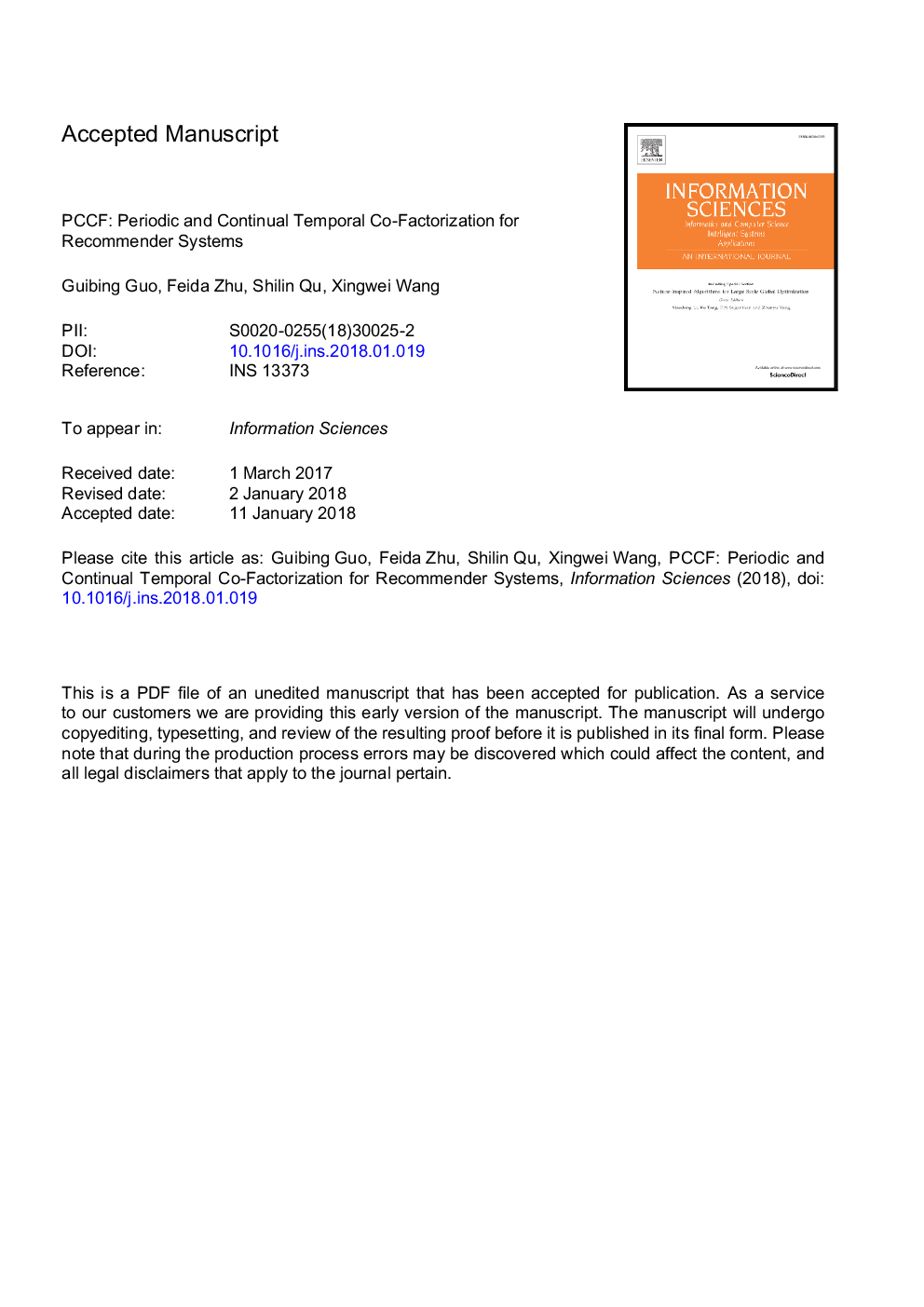| Article ID | Journal | Published Year | Pages | File Type |
|---|---|---|---|---|
| 6856605 | Information Sciences | 2018 | 31 Pages |
Abstract
Rating-only collaborative filtering has been extensively studied for decades with great improvements achieved in predicting a user's preference on a target item at a particular time point. Yet, it remains a research challenge on how to capture users' rating patterns which may drift over time. In this article, we propose a time-aware matrix co-factorization model, called PCCF, which considers two types of temporal effects, i.e., periodic and continual. Specifically, periodic effects refer to the impact of discrete periodic time slices with which users' preferences may be associated, and continual effects refer to the impact of continuous gradual time over which users' preference patterns may change. The fact that users exhibit different preference patterns with respect to different time aspect has been further confirmed by our analysis on three real-world data sets. Together with time-based user biases, we integrate the two kinds of temporal effects into a unified matrix factorization model. Experimental results on the three data sets demonstrate the effectiveness of both kinds of temporal effects for rating prediction as well as the superiority of our approach's performance over that of the other counterparts.
Keywords
Related Topics
Physical Sciences and Engineering
Computer Science
Artificial Intelligence
Authors
Guibing Guo, Feida Zhu, Shilin Qu, Xingwei Wang,
